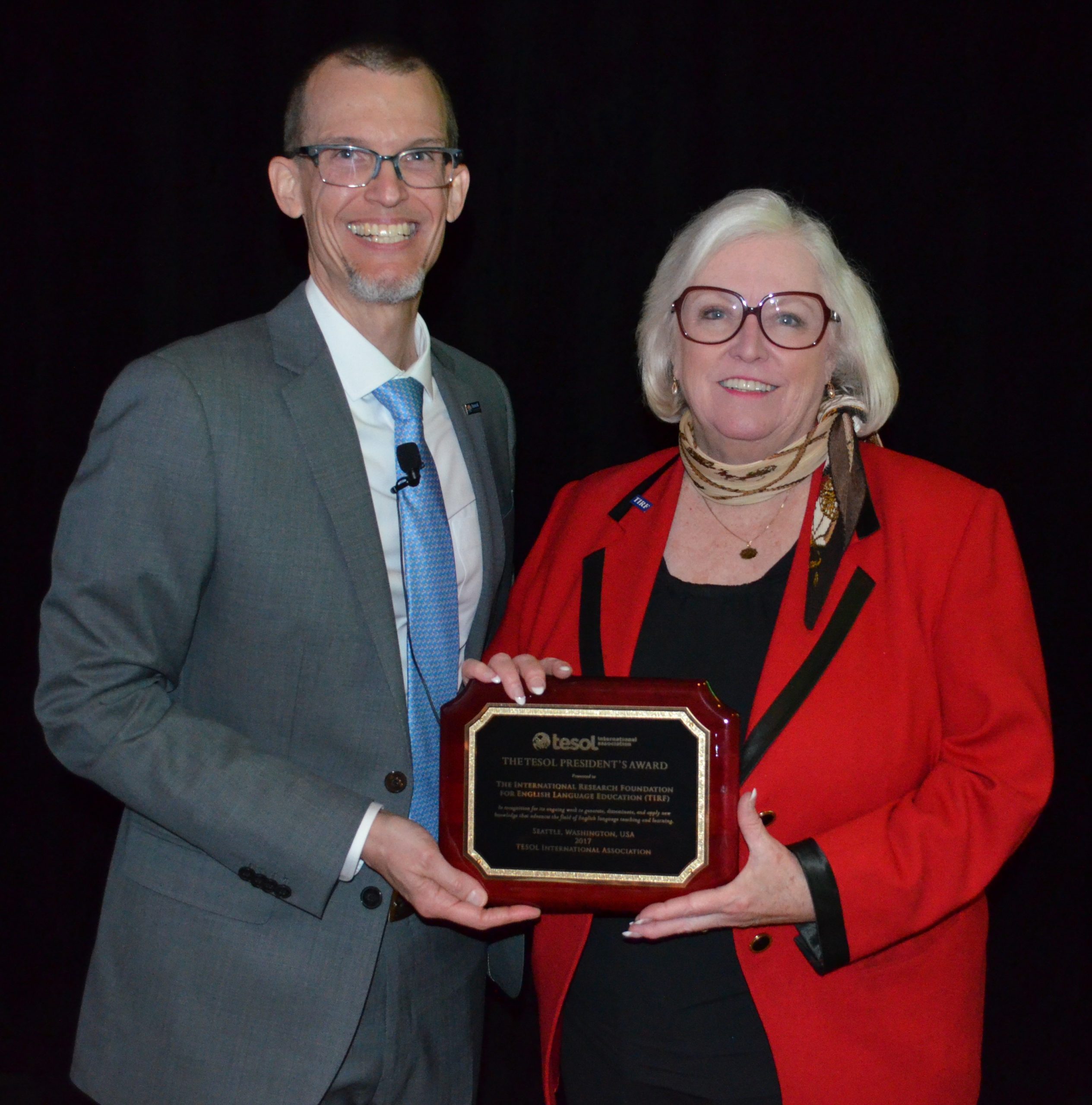
Last week at the TESOL Convention in Seattle, Washington, I was both honored and humbled to represent TIRF when the Foundation received the TESOL Presidents’ Award. This award is given each year to an individual or an organization chosen by the three TESOL Presidents (outgoing, current, and incoming). The award is meant to recognize people or groups who have demonstrated a commitment to English-language instruction, helped TESOL further its mission, and supported education in general.
Having been the TESOL President from 1998 to 1999, I know firsthand the thought and care that goes into the selection process for this prestigious award. Previous recipients have included UNICEF, the British Council, the Peace Corps, IATEFL, the Southern Poverty Law Center, Hillary Clinton, Pauli Freire, and others. It is indeed an honor that TIRF has been chosen to join this group of important organizations and people who work for the betterment of our stakeholders’ lives.
I am humbled to think of all the time, effort, and funding that hundreds of people have contributed over the years to get our Foundation to this point in its development. The original idea for TIRF was inspired by Joy Reid, when she was TESOL president from 1995 to 1996. She appointed the Association Advancement Committee to do a feasibility study to determine whether or not a foundation could be developed for our field. That group of senior leaders (Jim Alatis, Ed Anthony, Russ Campbell, Jodi Crandall, Rick Jenks, Joan Morley, and Dick Tucker) worked on the project for three years. The TESOL Board of Directors approved the plan in June of 1998 and TIRF was incorporated the following year.
Since that time, many people have worked diligently to get the Foundation to its present state: TIRF’s current and past Trustees; everyone who has publicized TIRF’s programs over the years; the proposal reviewers; the hundreds of people who have sent us reference lists and announcements; the authors and editors of the Key Questions papers and books; our publishing partners; and the donors (and future donors) who make our operations possible.
It is also important to acknowledge the efforts of the grant applicants – both those whose studies were selected for funding and those whose proposals were not chosen. It is this last group that motivates me to include “future donors” in the list of people to acknowledge. There have been many situations over the years where TRIF was unable to support worthy research projects because we did not have the funding to do so. I hope this Chair’s Report is read by many future donors who will be motivated to join us by contributing to efforts to promote TIRF’s mission.
Best wishes,
![]()

